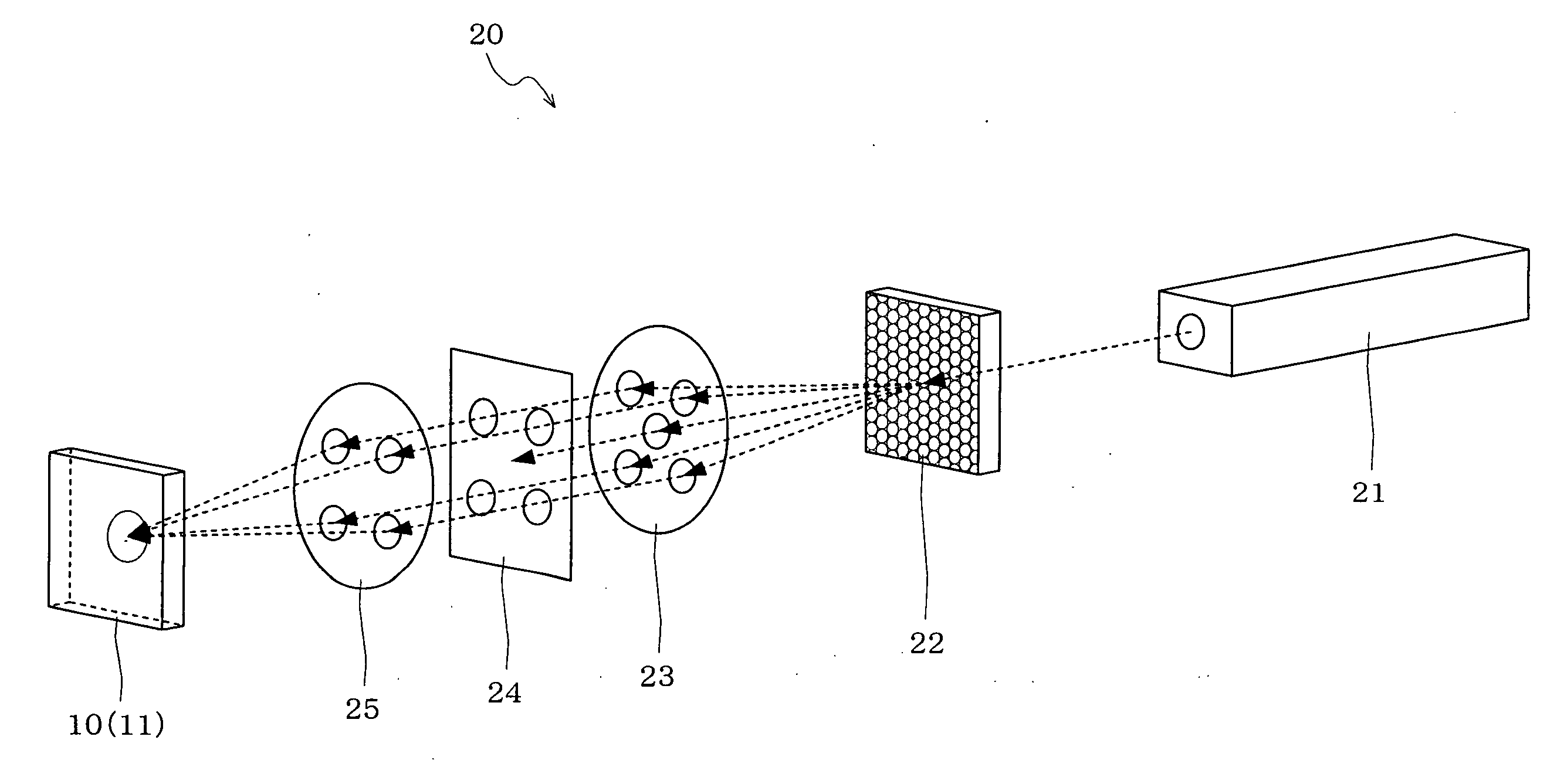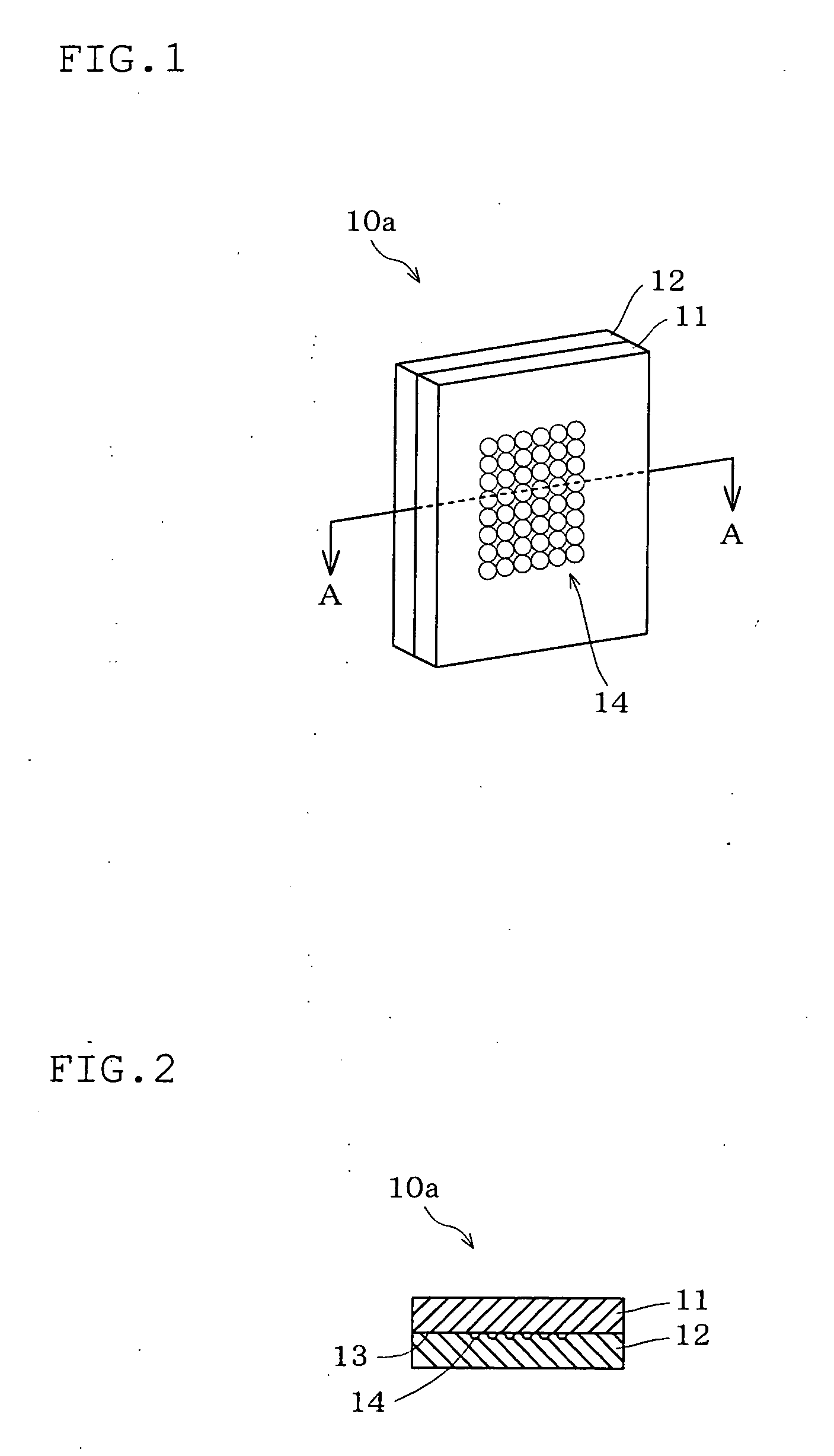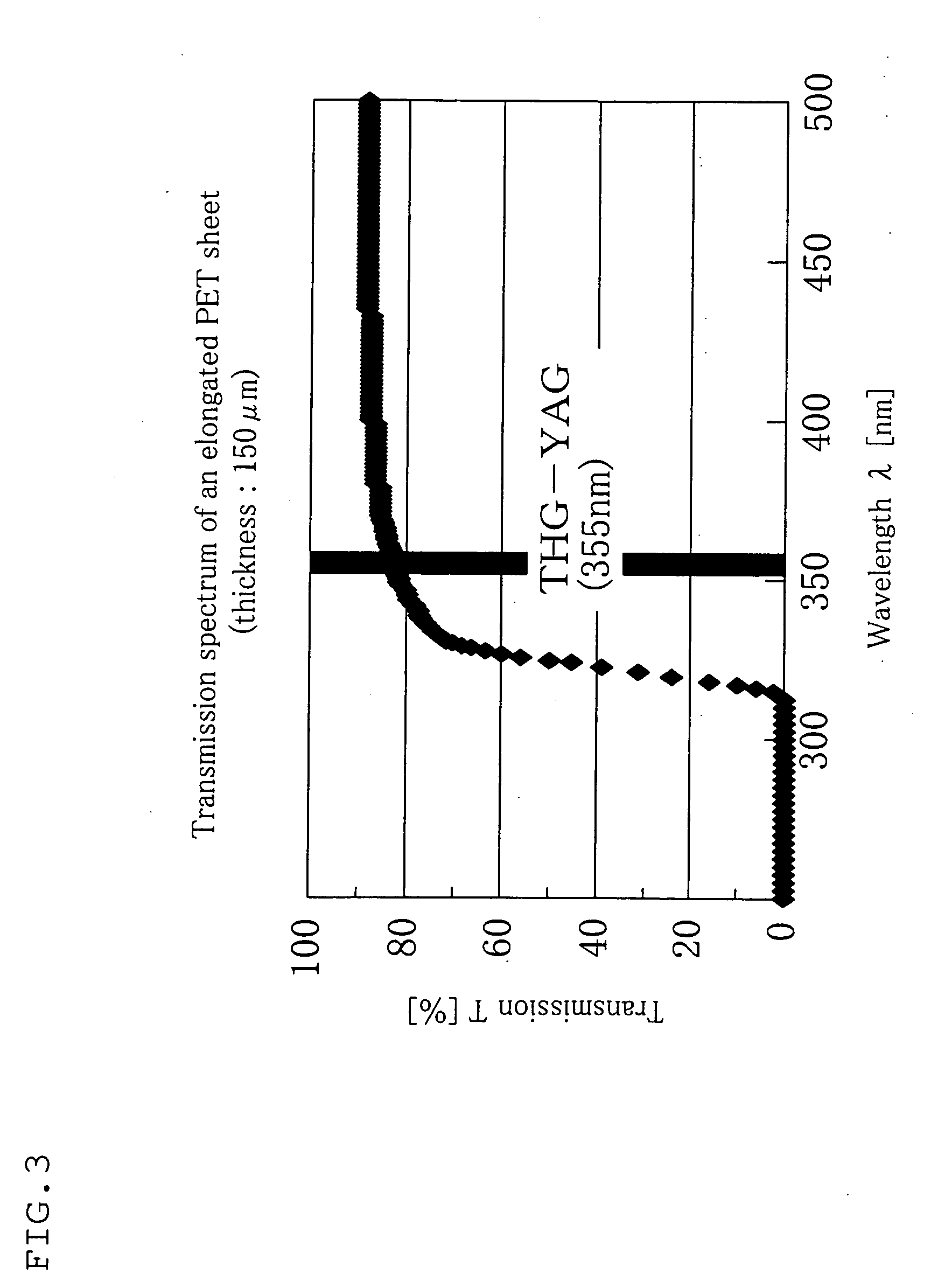Structure, method of forming structure, method of laser processing, and method of discriminating between true and false objects
a technology of forming structure and laser processing, applied in the field of structure, can solve the problems of difficult laser making on high-molecular processed products (plastics) which transmit laser light, poor appearance, and inability to draw important data, so as to prevent falsification or erasure of marked parts, improve laser light absorption, and prevent deterioration of coloring
- Summary
- Abstract
- Description
- Claims
- Application Information
AI Technical Summary
Benefits of technology
Problems solved by technology
Method used
Image
Examples
example 1
[0222]As the object 10d to be processed, a plurality of elongated PET sheets each having a thickness of 150 μm were prepared.
[0223]Of these elongated PET sheets, one or several sheets were irradiated for 10 minutes with UV rays emitted from a mercury and xenon lamp (manufactured by USHIO, Inc.) which was placed 12 cm away from the sheet.
[0224]The transmissibility of the elongated PET sheet for light with a wavelength of 355 nm was measured, and the results revealed that the transmissibility was 82.3% before the irradiation and 76.7% after the irradiation.
[0225]Subsequently, the above-mentioned elongated PET sheet which had been irradiated with UV rays and an elongated PET sheet which had not been irradiated with UV rays were prepared. These sheets were irradiated with the third harmonic wave of a Q-switch pulse YAG laser (wavelength: 355 nm), which shows transmissibility for an elongated PET sheet, by means of a laser light irradiation apparatus.
[0226]As for the specification of the...
example 2
[0231]As the object 10d to be processed, a plurality of elongated PET sheets each having a thickness of 150 μm was prepared.
[0232]Of these elongated PET sheets, one or several sheets were irradiated for 5 seconds with UV rays emitted from a mercury and xenon lamp (manufactured by USHIO, Inc.) which was placed 55 mm away from the sheet.
[0233]The transmissibility of the elongated PET sheet for light with a wavelength of 355 nm was measured, and the results revealed that the transmissibility was 82.3% before the irradiation and 82.1% after the irradiation.
[0234]Subsequently, the above-mentioned elongated PET sheet which had been irradiated with UV rays and an elongated PET sheet which had not been irradiated with UV rays were prepared. These sheets were irradiated with the third harmonic wave of a Q-switch pulse YAG laser (wavelength: 355 nm), which shows transmissibility for an elongated PET sheet, by means of an interference optical system (laser light irradiation apparatus 20).
[0235...
example 3
[0238]As the object 10d to be processed, four elongated PET sheets each having a thickness of 150 μm were prepared.
[0239]Of these elongated PET sheets, one elongated PET sheet was irradiated with UV rays emitted from a UV lamp (black light) with an emission peak wavelength of 254 nm for 90 minutes. Another elongated PET sheet was irradiated with UV rays emitted from a UV lamp with a wavelength of 302 nm for the same period of time. Still another elongated PET sheet was irradiated with UV rays emitted from a UV lamp with a wavelength of 365 nm for the same period of time. The remaining elongated PET sheet was not irradiated with UV rays emitted from a UV lamp.
[0240]Here, as for the transmissibility of the elongated PET sheet at a wavelength of 355 nm, the non-irradiated sheet showed 82.3%, the sheet irradiated with light with a wavelength of 254 nm was 80.4%, the sheet irradiated with light with a wavelength of 302 nm was 77.9% and the sheet irradiated with light with a wavelength of...
PUM
| Property | Measurement | Unit |
|---|---|---|
| wavelength | aaaaa | aaaaa |
| light wavelength | aaaaa | aaaaa |
| distance | aaaaa | aaaaa |
Abstract
Description
Claims
Application Information
 Login to View More
Login to View More - R&D
- Intellectual Property
- Life Sciences
- Materials
- Tech Scout
- Unparalleled Data Quality
- Higher Quality Content
- 60% Fewer Hallucinations
Browse by: Latest US Patents, China's latest patents, Technical Efficacy Thesaurus, Application Domain, Technology Topic, Popular Technical Reports.
© 2025 PatSnap. All rights reserved.Legal|Privacy policy|Modern Slavery Act Transparency Statement|Sitemap|About US| Contact US: help@patsnap.com



